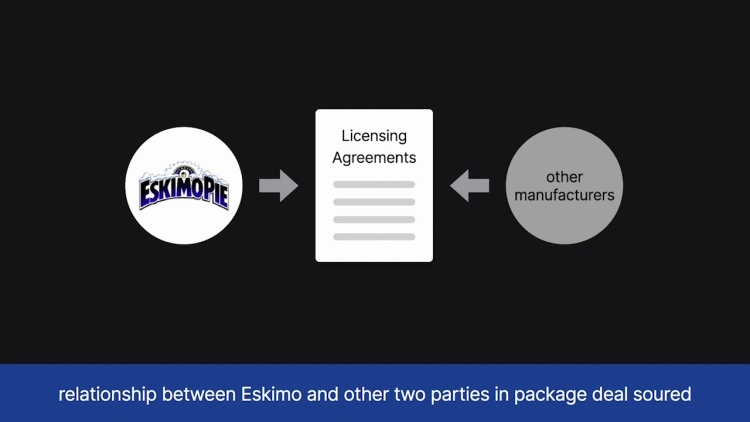Eskimo Pie Corp. v. Whitelawn Dairies, Inc.
United States District Court for the Southern District of New York
284 F.Supp. 987 (S.D.N.Y. 1968)

- Written by Sara Rhee, JD
Facts
On December 30, 1960, Eskimo Pie Corporation (Eskimo) (defendant) entered an integrated contract granting Whitelawn Dairies, Inc. (Whitelawn) (plaintiff) the right to manufacture ice cream products bearing Eskimo wrappers and labels, and granting Supermarket Advisory Sales, Inc. (SAS) the right to purchase and sell Eskimo products in the New York City (NYC) Metropolitan Area. The contract provided that Whitelawn and SAS would have the “non-exclusive” right to purchase and sell Eskimo products. Beginning in 1962 and 1963, Eskimo began selling its own products in the NYC Metropolitan Area and granted other manufacturers and distributors the right to make and sell its products. This led to mutual claims of breach of contract among the parties. At trial, Whitelawn and SAS sought to introduce parol evidence that the term “non-exclusive” essentially meant “exclusive,” subject to a few exceptions. According to Whitelawn and SAS, the parties agreed not to include a clause expressly limiting Eskimo’s ability to sell its own products and grant licenses to other companies, with the understanding that the term “non-exclusive” would encapsulate that meaning. Eskimo argued that parol evidence was barred.
Rule of Law
Issue
Holding and Reasoning (Mansfield, J.)
What to do next…
Here's why 911,000 law students have relied on our case briefs:
- Written by law professors and practitioners, not other law students. 47,100 briefs, keyed to 997 casebooks. Top-notch customer support.
- The right amount of information, includes the facts, issues, rule of law, holding and reasoning, and any concurrences and dissents.
- Access in your classes, works on your mobile and tablet. Massive library of related video lessons and high quality multiple-choice questions.
- Easy to use, uniform format for every case brief. Written in plain English, not in legalese. Our briefs summarize and simplify; they don’t just repeat the court’s language.





